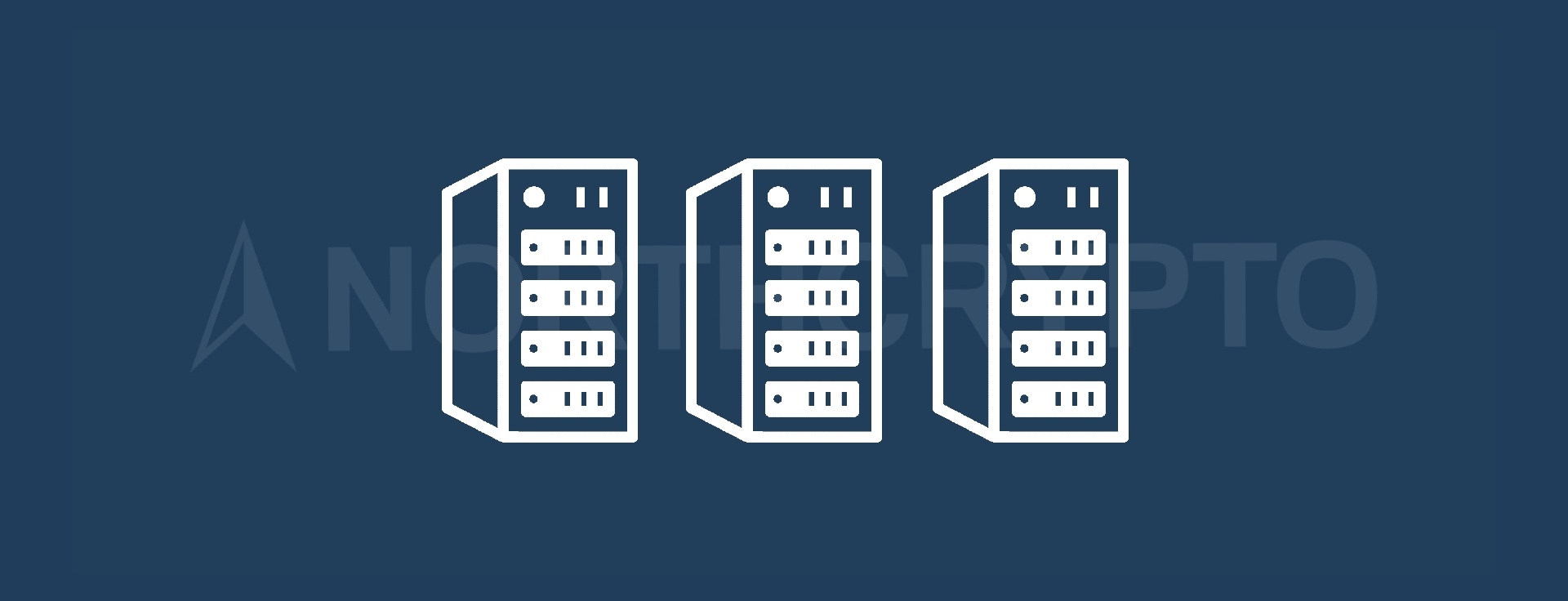
Bitcoin mining is a topic frequently discussed in the media. Furthermore, recent news articles on Bitcoin mining have generally portrayed it in a negative light. In this blog post, we will first examine Bitcoin mining in general and then delve into the benefits of Bitcoin mining.
Bitcoin Mining
In essence, Bitcoin mining is the process of maintaining the Bitcoin network. To be more precise, mining involves adding bitcoin transactions to a new block, which is added to the end of the Bitcoin blockchain approximately every ten minutes. With the appearance of a new block, new bitcoins are also created in the form of a block reward. Bitcoin operates on a Proof of Work consensus algorithm, which requires miners to use computational power in the mining process. In practice, miners use computers specifically designed for Bitcoin mining. Miners are incentivized by the aforementioned block rewards and transaction fees.
Bitcoin mining is essentially a competition among miners to be the first to solve a problem that allows them to add transactions to a new block and include that block in the Bitcoin blockchain. Nowadays, mining is a highly professional business, with leading players being publicly traded companies operating tens of thousands of high-value mining machines, each costing thousands of euros. Mining is conducted worldwide.
Electricity Consumption in Bitcoin Mining
Bitcoin mining equipment, like all electrical devices, requires electricity to function. To succeed in mining, Bitcoin miners need to use a significant amount of computational power, which, in turn, requires a substantial amount of electricity. According to a 2022 estimate from the University of Cambridge, Bitcoin consumed approximately 95.5 terawatt-hours (TWh) of electricity. To put this in perspective, this is slightly more than Finland's energy consumption, which stood at 85.5 TWh in 2022.
According to emissions reduction technology expert Daniel Batten, the Bitcoin network hash rate, the number of Bitcoin users, and the price of Bitcoin have all increased by approximately 475%, 289%, and 163%, respectively, over the last four years (as of September 2023). However, during the same period, the Bitcoin network emissions, essentially the emissions from Bitcoin mining, have decreased by almost ten percent. Many experts believe that the emissions of Bitcoin will continue to decline in the future, even as other metrics and the price of Bitcoin continue to rise.
Next, let's explore the benefits of Bitcoin mining. These benefits can justify that despite high electricity consumption, Bitcoin mining is beneficial on a global scale, particularly in the adoption of renewable energy sources and emission reduction.
Bitcoin Mining as a User of Environmentally Sustainable Energy Sources
As an industry, Bitcoin mining is one of the most environmentally sustainable industries globally. According to the Bitcoin Mining Council, composed of researchers studying Bitcoin mining and several major mining companies as of H1 2023, approximately 59.9% of the electricity used for Bitcoin mining during the first half of 2023 was produced in an environmentally sustainable manner. While, for example, Finland aims to be a pioneer and leader among nations in the production of environmentally sustainable energy, Bitcoin mining can be seen as an industry that is pioneering and leading the way in the use of environmentally sustainable energy.
When Bitcoin mining is compared to other industries, it becomes evident that the share of environmentally sustainably produced electricity in Bitcoin mining, depending on the source, is approximately 50-60 percent, which is notably the highest. According to Daniel Batten, the corresponding percentages for the banking sector, traditional industry, agriculture, and gold mining are approximately 39%, 32%, 20%, and 13%, respectively. Furthermore, the development of Bitcoin mining in recent years has been particularly positive regarding the use of environmentally sustainably produced electricity. According to Batten, industries such as the banking sector, traditional industry, agriculture, and gold mining have increased their share of environmentally sustainably produced electricity by about 1-3 percent over the past four years (as of September 2023), while Bitcoin mining has seen a growth of approximately 38% during the same period.
Bitcoin Mining in Demand Response
According to Fingrid, the entity responsible for Finland's electricity transmission grid, demand response refers to shifting electricity consumption from high-demand, high-price hours to more cost-effective times. Demand response becomes more essential, especially as the share of inflexible production, such as renewable energy and nuclear power, increases in the electricity grid. Demand response has become a relevant topic of discussion in Finland, partly due to the Olkiluoto 3 nuclear power plant, as the price of electricity on the spot market has dropped to zero or even turned negative multiple times.
The best candidates for demand response are those who can quickly and flexibly increase or decrease their electricity consumption. Bitcoin miners are potentially among the best actors in demand response because mining equipment can practically often be started and shut down with the press of a button. An excellent example of this is provided by Bitcoin mining companies operating in Texas, USA, which have contributed to the stability of Texas's energy grid during periods of high demand, such as summer heatwaves. For instance, the Bitcoin mining company Riot Platforms announced receiving around 30 million euros in power and demand response credits in August 2023, as it reduced its electricity consumption by up to 95% when needed.
Utilizing Methane in Bitcoin Mining
According to the International Energy Agency (IEA), methane has contributed to approximately 30% of the global temperature rise since the industrial revolution. This is due, in part, to methane's ability to trap heat about 84 times more effectively than carbon dioxide. Therefore, rapid and sustained reductions in methane emissions are crucial for mitigating global warming in the near future.
So, how can methane emissions be most effectively reduced in practice? Methane emissions are generated, among other sources, in natural gas production. In natural gas production, methane emissions can be almost entirely eliminated by using it to generate electricity with a generator. Estimates suggest that about 50% of the world's natural gas fields lack the means to sell electricity to the grid, making electricity generation without demand impractical. These natural gas fields essentially need an electricity-consuming customer located nearby.
This is where Bitcoin mining comes into play. Bitcoin mining companies are practically the only entities for which it makes sense to build operations near natural gas fields. This is due to the exceptional nature of Bitcoin mining companies, as approximately 80% of their operational costs consist of electricity expenses. In principle, Bitcoin mining has the potential to make methane emission reduction profitable for roughly half of the world's natural gas fields.
A practical example of Bitcoin mining's role in methane emission reduction comes from ExxonMobil, the largest oil and gas company in the United States, which initiated a pilot program in January 2021. ExxonMobil's pilot program uses natural gas that would otherwise be vented into the atmosphere to produce electricity, which is then used for Bitcoin mining.
Utilizing Heat Generated as a Byproduct of Bitcoin Mining
Bitcoin mining equipment generates a quite significant amount of heat as a byproduct. In recent years, this heat has been harnessed for various purposes, including heating homes, commercial spaces, greenhouses, and swimming pools. A practical example of utilizing the heat generated as a byproduct of Bitcoin mining comes from Seinäjoki, Finland, in 2023. It involves a project by MinersLoop, specializing in Bitcoin mining, and Calefa, specializing in the reuse of thermal energy, where the heat produced from Bitcoin mining is used as district heating in Seinäjoki.
Summary
Bitcoin mining is an operation that maintains Bitcoin, with efficient computers designed for mining. Mining equipment consumes a significant amount of electricity, and the global electricity consumption for Bitcoin mining is on par with that of countries the size of Finland. Despite high electricity consumption, Bitcoin mining has various benefits. It can be considered a pioneer and leader in environmentally sustainable energy sources. Bitcoin mining is also one of the best-suited operations for demand response which is a current topic at the moment and also probably in the future. Additionally, Bitcoin mining can directly reduce emissions by using electricity generated in natural gas production. Furthermore, the heat generated as a byproduct of Bitcoin mining has multiple applications, from heating homes to greenhouses.
Ville Viitaharju
Cryptocurrency specialist
Last updated: 20.10.2023 15:00





